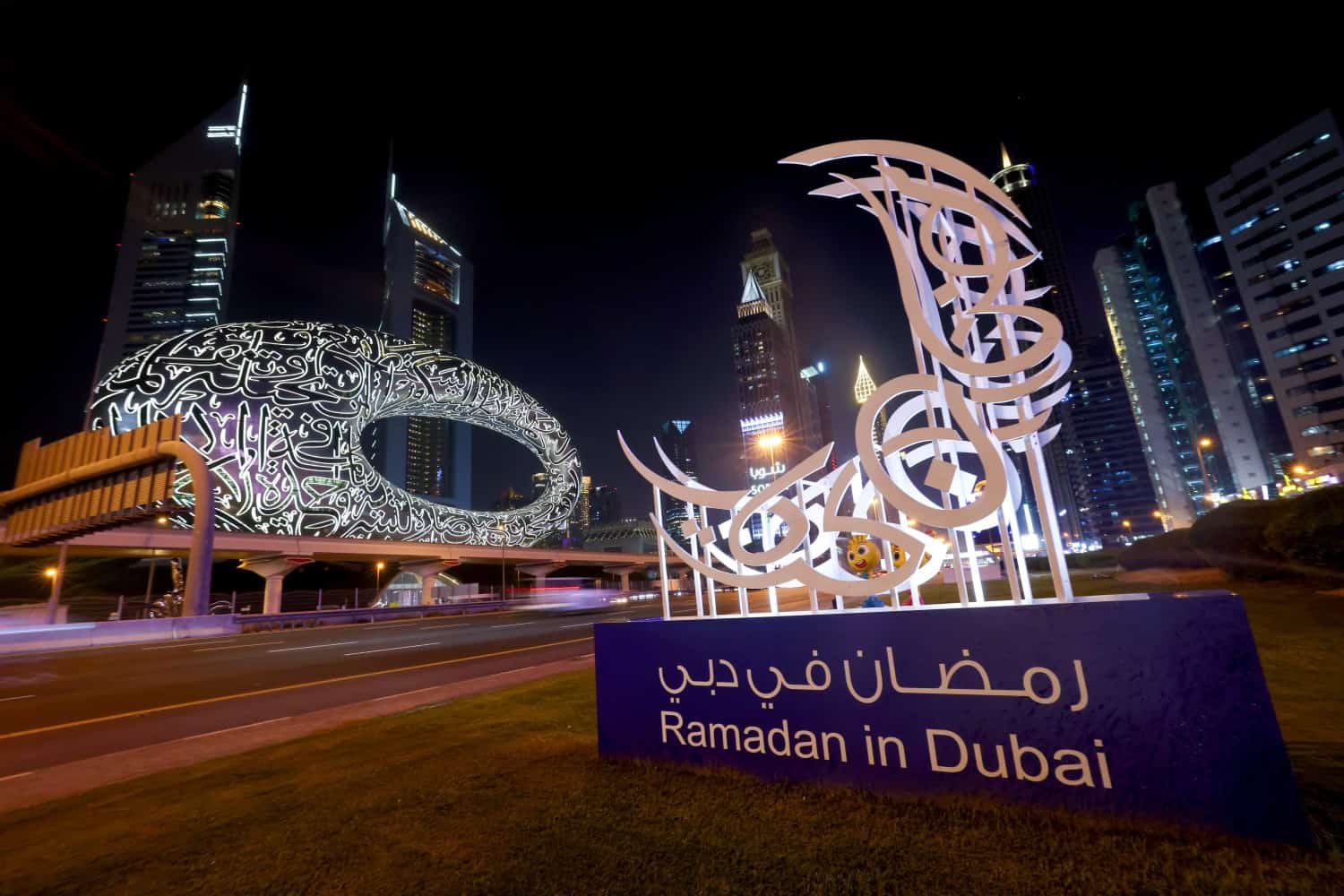Several events in Dubai during Ramadan 2022 show that the UAE’s attempts to combat the COVID-19 pandemic have been successful and that the holy month’s environment of goodwill has been recovered.
During Ramadan, people who visit or reside in the UAE have many modern and traditional ways to celebrate this month.
One of the most prominent events in Dubai this year is the return of Ramadan tents. However, there are many cultural events as well, the most significant of which is the “Sheikh Mohammed bin Rashid Al Maktoum Center for Cultural Understanding,” which offers a variety of activities to inform visitors about Dubai’s culture and traditions.
Cultural events
Dubai marks the Holy Month of Ramadan in style, with lighting designs displayed throughout the city to celebrate this special time of year.
With the end of the pandemic and the completion of Expo 2020 Dubai, the Dubai Festivals and Retail Corporation presents various cultural events and experiences across the city as part of the “Ramadan in Dubai” campaign.
For the first time since the pandemic, iftar tents are open during Ramadan. The marquees were banned for the past two years to prevent gatherings and limit the spread of the coronavirus.
The pandemic affected many aspects of Ramadan practices, from limiting communal prayers and preventing large family gatherings for iftar to changing how charity meals are distributed and suspending suhoor tents.
While iftar tents are reinstated this year for government and licensed entities, authorities advise that group iftars and suhoor gatherings be limited to family members in the same household.
Furthermore, during the holy month this year, five distinct night markets were launched in Dubai Festival City Mall, Al Seef, Mall of the Emirates, Mercato Mall, and Bluewaters Island, where visitors gather for an immersive experience that mix shopping, delicious food, and cultural activities.
In collaboration with “Ripe by the Bay,” the night market at Dubai Festival City Mall offers a one-of-a-kind experience in restaurants that serve Iftar and Suhoor meals, Arabic music entertainment sessions, and camel riding experiences, and many other activities.
The Emirati village within the mall also displays Emirati traditions, such as workshops, storytellers for children, historical installations, and Arabic calligraphy.
Moreover, During the holy month, the malls host numerous events and celebrations, including the daily “Imagine” light show outside Dubai Festival City Mall after feasting.
On weekends, Mercato Mall offers a variety of events for families, including an arts and crafts section with Ramadan activities such as crafting lanterns, decorating candles and greeting cards, and an Arabic music ambiance every day after feasting.
Muhannad Alchurbaji, an expat residing in Dubai, expressed to TRENDS the spirituality that Ramadan retains in the country, stating that the global village and the tents are the most appealing celebrations or events to visit during this holy month, in addition to the offers that take place all over the shops and malls.
Hotel discounts
Ramadan is recognized as one of the most important seasons for offering special deals, whether in restaurants or hotel rooms, to encourage the public and businesses to spend delightful moments, thereby contributing to the revival of the internal tourism movement.
Since the start of Ramadan, hotels, restaurants, and tents have been active with high occupancy, some reaching 100%, and bookings for iftar and suhoor celebrations for corporate employees.
Experts in the hotel industry stated that hotel restaurants were keen to offer discounts of 15 to 20 percent for groups of more than 50 people as part of hotel marketing policies to boost their returns in Ramadan by focusing on restaurants that account for 40 to 60 percent of hotel revenues during the holy month.
No permit is required to serve food
Last year, restaurants in Dubai were allowed to serve customers throughout the day during Ramadan without the need for curtains, separators, or facades.
Similarly, this year, no prior license or permit is required for restaurants to offer food during Ramadan fasting hours.
Restaurants and cafes located in food courts can “operate business as usual,” – which means they don’t have to place screens or curtains to serve food during the day, according to Dubai’s Department of Economy and Tourism (DET).

